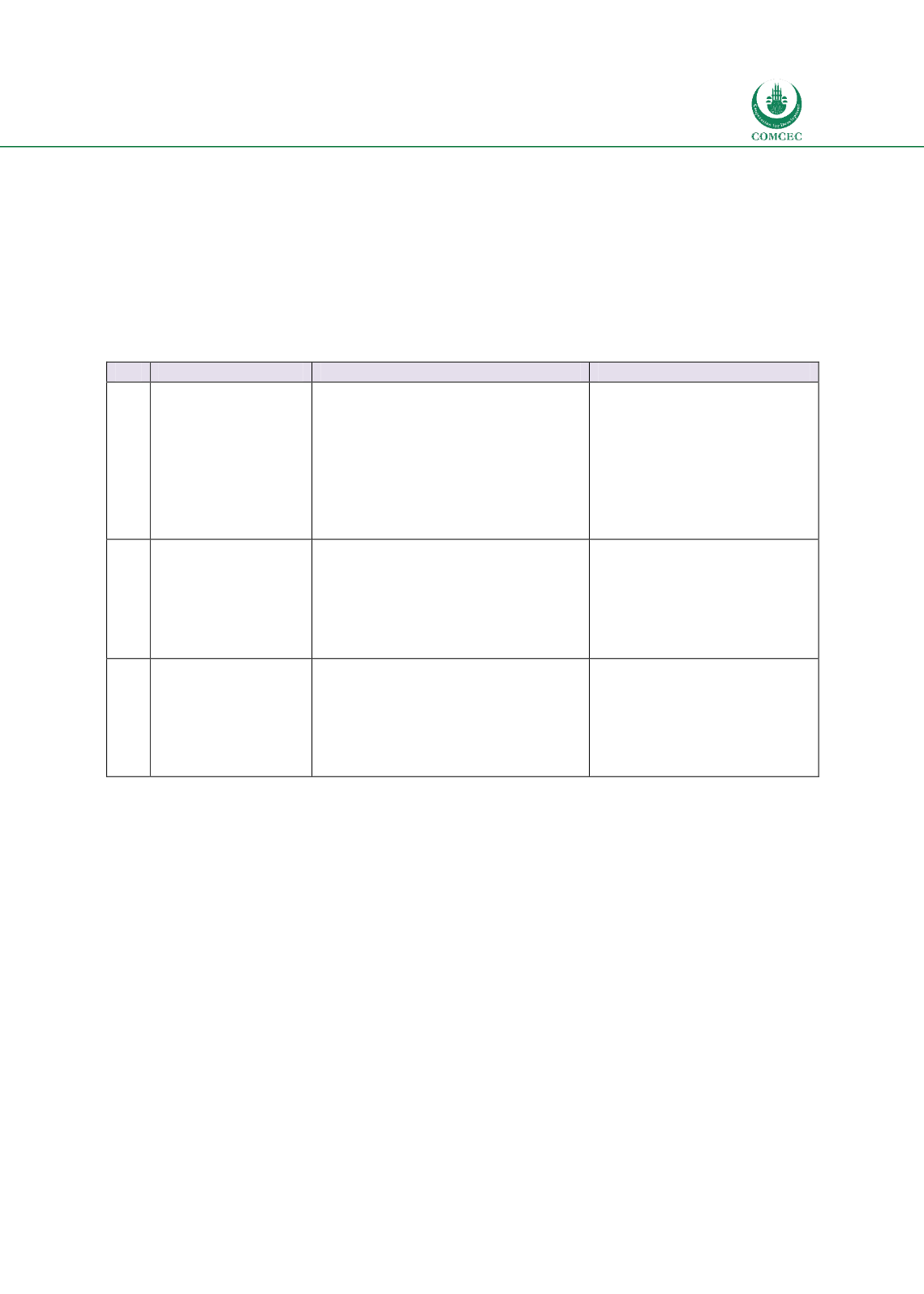

National and Global Islamic Financial Architecture:
Prolems and Possible Solutions for the OIC Member Countries
211
Existence of an independent national Shariah body can help harmonize the Shariah rulings and
minimize diversity of fatwas that introduces legal and reputational risks. The national Shariah
board can either be established by the regulators or by the religious ministry. There can be a
separate Central Shariah Board for different financial sectors or one central board that deals
with all sectors. One of the roles of the national level Shariah board is to come up with Shariah
parameters or standards for different Islamic financial products. This will add to the
harmonization of Islamic financial practices within the jurisdiction and also reduce the costs of
Shariah governance at the organizational levels.
Table
7.3: Shariah Governance Framework
No. Recommendations Specific Steps
Implemented by
3.1
Legal/Regulatory
Requirement
for
Shariah Governance
(SG)
Shariah
governance framework
included in Islamic financial laws
Regulatory framework for SG in
Islamic banks
Regulatory framework for SG in
Takaful
Regulatory framework for SG in
Islamic capital markets
Government (Ministry of
Law/ Legal Affairs)
Banking sector regulator
Insurance/Takaful sector
regulator
Capital markets regulator
3.2
Central
Shariah
Advisory Board
(CSAB)
CSAB for Islamic banking sector
CSAB for Takaful sector
CSAB for Islamic capital markets
Government (Ministry of
Religious Affairs)
Banking sector regulator
Insurance/Takaful sector
regulator
Capital markets regulator
3.3
Developing
Shariah
parameters/
standards
Shariah
parameters/ standards
for Islamic banking sector
Shariah
parameters/ standards
for Takaful sector
Shariah
parameters/ standards
for Islamic capital markets
CSAB for Islamic banking
sector
CSAB for Takaful sector
CSAB for Islamic capital
markets
7.1.4. Liquidity Infrastructure
The liquidity infrastructure can be strengthened by providing the instruments, markets and
the facilities that Islamic financial institutions can tap into in case they need them. This would
require developing and issuing Shariah compliant liquidity instruments that Islamic financial
institutions can use either to place surplus funds or acquire funds when necessary. These
liquidity instruments can be issued either by the government or financial institutions. Note
that the government bodies have to come up with Shariah compliant liquid instruments that
satisfy conditions of High Quality Liquid Assets of the new Basel III liquidity requirements.
















